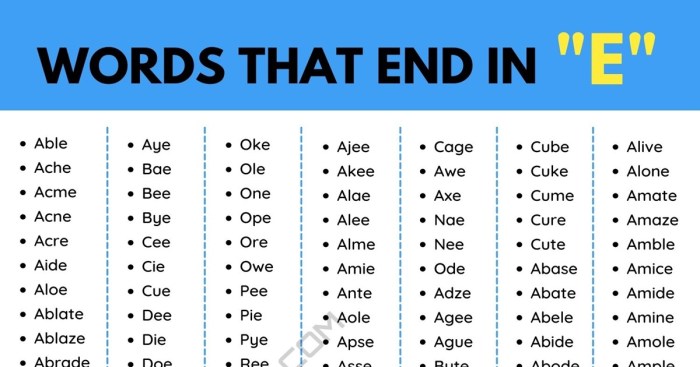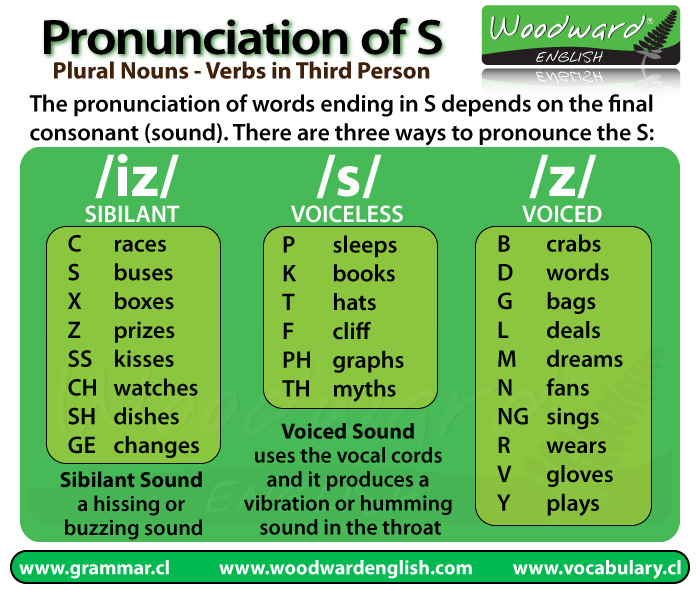Palabras en ingles que terminen en o – English words that end in ‘O’ form a fascinating part of the language, offering insights into its grammatical structure, historical evolution, and creative potential. This comprehensive guide explores the diverse array of words that conclude with this distinctive vowel, providing a deeper understanding of their usage and significance.
From common words like ‘to’ and ‘no’ to more obscure terms like ‘quarto’ and ‘soprano’, the letter ‘O’ serves a variety of grammatical functions, altering the meaning and part of speech of words. Its historical roots trace back to Old English, where it played a crucial role in shaping the language’s morphology.
Moreover, regional variations in pronunciation add to the richness of these words, creating distinct accents and dialects.
Examples of English Words Ending in ‘O’

English has a wide array of words that terminate in the letter ‘O’. These words encompass various parts of speech and can be classified alphabetically or by their length. Some common examples include:
- Also
- Bueno
- Echo
- Fido
- Hello
- Logo
- Patio
- Potato
- Tomato
- Veto
Grammatical Usage of ‘-O’ Endings

The ‘-O’ ending serves specific grammatical functions in English:
Nouns
‘-O’ is commonly used to form nouns that denote actions, objects, or qualities, such as:
- Bravo
- Dynamo
- Echo
- Halo
Adjectives
‘-O’ endings can transform verbs into adjectives, indicating a state or quality, such as:
- Calico
- Gigolo
- Octagonal
- Ultimo
Adverbs, Palabras en ingles que terminen en o
‘-O’ can be added to adjectives to form adverbs, describing the manner or degree of an action, such as:
- Alto
- Bravo
- Lento
- Piano
Historical Evolution of ‘-O’ Endings
The ‘-O’ ending has undergone significant changes throughout the history of English:
Old English:‘-O’ was commonly used to indicate the past tense or subjunctive mood.
Middle English:‘-O’ was gradually replaced by ‘-E’ for past tense and subjunctive forms.
Modern English:‘-O’ is primarily used for forming nouns, adjectives, and adverbs, as well as for certain borrowed words.
For example, the Old English word “dido” (past tense of “don”) has evolved into the modern English word “did”.
Cultural and Regional Variations in ‘-O’ Endings

The pronunciation of ‘-O’ endings can vary across different dialects and accents of English:
Standard American English:‘-O’ is typically pronounced as /oʊ/ (as in “home”).
British English:‘-O’ can be pronounced as /oʊ/ (as in “home”) or /ɒ/ (as in “hot”).
Australian English:‘-O’ is often pronounced as /əʊ/ (as in “how”).
For example, the word “tomato” is pronounced as /təˈmɑːtoʊ/ in Standard American English, /təˈmɑːtəʊ/ in British English, and /təˈmɑːtəʊ/ in Australian English.
Creative Applications of ‘-O’ Endings

The ‘-O’ ending offers creative possibilities in various contexts:
Poetry:‘-O’ endings can create rhyme and rhythm, as seen in William Blake’s poem “The Tyger”:
Tyger Tyger, burning bright,
In the forests of the night;
What immortal hand or eye,
Could frame thy fearful symmetry?
Songwriting:‘-O’ endings can provide a catchy and memorable sound, as in the chorus of The Beatles’ song “Hello, Goodbye”:
Hello, goodbye, hello, goodbye,
I don’t know why you say hello, goodbye.
Wordplay:‘-O’ endings can be used for puns and other forms of wordplay, such as in the title of the novel “Catch-22” by Joseph Heller.
Common Queries: Palabras En Ingles Que Terminen En O
What are the most common English words that end in ‘O’?
Some of the most common English words that end in ‘O’ include: to, no, so, do, go, who, into, onto, and photo.
How do ‘-O’ endings change the meaning or function of words?
‘-O’ endings can change the meaning or function of words in several ways. For example, adding ‘-O’ to a noun can create an adjective (e.g., ‘hero’ becomes ‘heroic’), while adding ‘-O’ to a verb can create a noun (e.g., ‘act’ becomes ‘action’).
What are some examples of cultural and regional variations in the pronunciation of ‘-O’ endings?
In some dialects of English, the ‘-O’ ending is pronounced with a long ‘O’ sound (e.g., ‘hello’), while in other dialects it is pronounced with a short ‘O’ sound (e.g., ‘tomato’).